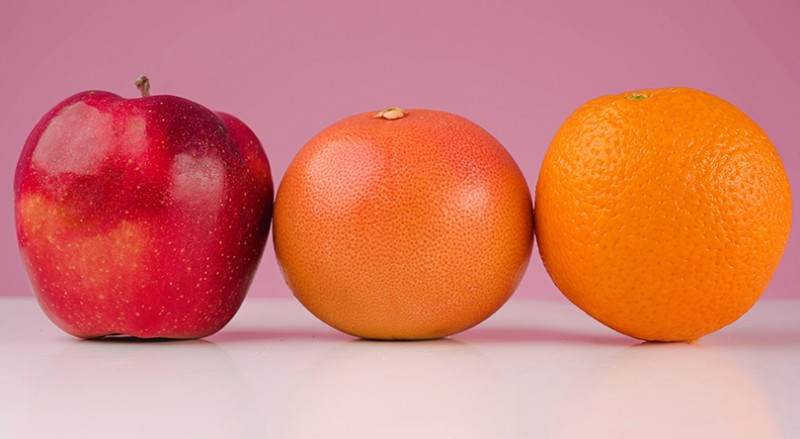How many times have we been told that a healthy diet should contain plenty of fruits and vegetables, and in a variety of bright colors? There's something to be said about the benefits afforded by those assorted fruits and veggies, and color is key. The pigments that give those foods their colors themselves provide of health benefits, taking the form of such compounds as rutin. Rutin, also known as vitamin P, sophorin, and rutoside, is a flavonoid. That puts rutin in a vast group of biologically active, water-soluble compounds of which pigments is one, ranging in color from yellow to red to blue. Rutin, like all flavonoids, is also an antioxidant, working full time once ingested to stand guard over your cells, while also carrying out duties such as acting as an anti-inflammatory and protecting the heart, liver, brain, and bones.
What About Hemorrhoids and Varicose Veins?
Those, too. Rutin supplements are well-suited to treat those two conditions, which don't often get discussed. Which makes sense – varicose veins are unsightly and often covered up from public view, while hemorrhoids, well, those are just embarrassing to admit to, knowing that any mention of hemorrhoids usually elicit giggles. Per National Institutes of Health (NIH), a study with 69 women with varicose veins showed that a form of rutin administered orally for eight weeks reduced symptoms and swelling. Varicose veins and hemorrhoids also are painful, and the discomfort can be unrelenting. Hemorrhoids can make even the most mundane of activities, such as walking or sitting, unbearable at times. Thank goodness, rutin is here to help, and that it does with its many available benefits for a wide range of health conditions.How Does Rutin Work?
Rutin can be found in such consumables as black tea, green tea, buckwheat bran, bilberry, a variety of citrus fruits, and apple skins, and it is available in supplement form as well. Other sources include the Japanese pagoda tree, the leaves of several species of eucalyptus, lime tree flowers, elder flowers, european tree barks, hawthorn leaves, St. John's Wort, and Ginkgo biloba, per webmd.com. Once it is ingested, rutin benefits your body by helping it to utilize vitamin C and in producing collagen, which can assist in the treatment of hemorrhoids as well as reduce wrinkles and enhance elasticity in the skin, per livestrong.com. Integrative medicine expert Dr. Andrew Weil also has suggested that rutin's knack for promoting the strength and flexibility of capillaries makes it useful for treating strained blood vessels and strengthening blood vessels for conditions such as hemorrhoids and varicose veins. Furthermore, as an antioxidant, rutin can neutralize free radicals, which, when left unfettered, can create plaque and thus block arteries, hindering blood flow and leading to heart disease and stroke.Rutin's Other Possible Benefits
- Treat osteoarthritis. Per webmd.com, rutin used in tandem with trypsin and bromelain has proven as effective as the medication diclofenac (Voltaren) in alleviating pain and restoring knee function in people with osteoarthritis.
- Reduce arm swelling after breast surgery. Likewise, research suggests that rutin, as one of several ingredients in Wobenzym N administered to a patient for seven weeks, can play a beneficial part in reducing arm swelling resulting from breast-removal surgery.
- Reduce inflammation. Rutin combats unwanted inflammation by blocking inflammatory enzymes, per selfhacked.com. By reducing the production of inflammatory molecules in brain cells, it can also help diminish the risk of cognitive issues.
- Detoxify body. By binding to free radicals, rutin can render them harmless, per organicfacts.net, allowing the body to flush them out before they can cause problems such as oxidative stress and other chronic conditions.
- Lower cholesterol. Tests using animals have shown that rutin can reduce overall and LDL cholesterol ( bad ) without affecting HDL cholesterol ( good ) levels.
- Rutin has also shown to be effective in treating osteoporosis, bruising, venous insufficiency, post thrombotic syndrome, and Meniere's disease, a condition that can cause tinnitus, dizziness and occasional hearing loss.

